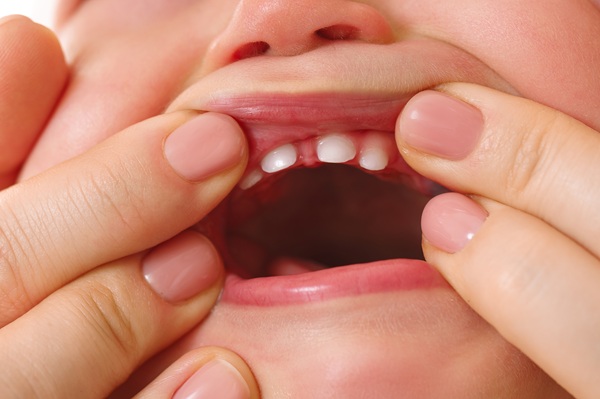If you’ve been struggling with jaw pain, headaches, or hear a clicking sound when you chew, you might be dealing with TMJ, a condition that affects the jaw joint and surrounding muscles.
While some people experience mild symptoms that improve with time, others may notice things gradually getting worse, which is why you should watch out for the signs.
So how do you know if your TMJ is getting worse? What signs should you look out for? And more importantly, what can you do about it?
In this blog, we’re going into detail on what you should watch out for when it comes to TMJ, so that you know when it’s time to take action.
Let’s dive right in!
What Is a TMJ?
Your TMJ (temporomandibular joint) is the hinge that connects your jaw to the rest of your skull. You have one on each side of your face, and they help you talk, chew, and even yawn.
When there’s a problem with the joint or the muscles around it, it’s called a TMJ disorder or TMD. These issues can be painful, frustrating, and affect your everyday life.
What Causes TMJ Disorder?
TMJ disorders can come from a range of causes. Sometimes, it’s due to teeth grinding (also known as bruxism). Other times, it might be from an injury, arthritis, or even stress, which can cause you to clench your jaw without realising it.
Knowing what causes TMJ can help you better manage it and avoid habits or situations that might make things worse.
What to Watch Out For with TMJ Disorder
If you’ve already been diagnosed with TMJ or you suspect you might have it, here are nine signs that your condition could be worsening.
1. Increased Jaw Pain or Stiffness
If your jaw pain is becoming more frequent or intense, especially when chewing, speaking, or waking up in the morning This is a clear sign your TMJ is getting worse. Stiffness or a “locked” feeling in the jaw can also be a red flag.
2. Headaches That Won’t Go Away
TMJ issues can cause tension headaches, especially around the temples. If your headaches are becoming more severe or lasting longer than usual, it may be time to get your jaw checked.
3. Clicking or Popping Gets Louder or More Frequent
Some people with TMJ hear a clicking or popping sound when they move their jaw. If this sound becomes louder, more frequent, or starts to come with pain, it might mean the joint is getting more inflamed or misaligned.
4. Ear Pain or Ringing in the Ears (Tinnitus)
Because the TMJ is located close to your ears, earaches or ringing can sometimes be linked to jaw issues. If your ears feel sore or blocked and there’s no sign of infection, your TMJ could be the cause.
5. Difficulty Chewing or Biting
If you notice that eating certain foods has become uncomfortable—or that your bite feels “off”, this could be a sign of jaw joint misalignment. This kind of change shouldn’t be ignored.
6. Facial Swelling or Tenderness
Swelling on one or both sides of your face, especially around the jawline, could be due to inflammation in the jaw joint. This symptom is often linked to more severe cases of TMJ disorders.
7. Tooth Wear or Damage
Many people with TMJ grind or clench their teeth without realising it. Over time, this can cause teeth to become flat, chipped, or cracked. If your dentist has pointed out tooth wear, it could be a sign that what makes TMJ worse—like grinding—is happening at night.
8. Neck and Shoulder Pain
The pain from TMJ disorders doesn’t always stay in the jaw. It can radiate to your neck, shoulders, and upper back, especially if you’re tensing those muscles from discomfort or poor sleep.
9. Poor Sleep or Waking Up Tired
If you’re waking up with sore jaw muscles, dull headaches, or just feeling exhausted, it could be due to night-time jaw clenching or grinding. This often happens without you realising, but it’s one of the major signs that your TMJ condition may be worsening.
What Makes TMJ Disorder Worse?
If you’re looking for a simple list to watch out for, here’s a few common triggers to be wary of:
- Chewing gum or eating chewy, tough foods
- Stress, which can lead to jaw clenching or teeth grinding
- Poor posture, especially when using phones or computers
- Injury or trauma to the jaw area
- Sleeping on one side of your face regularly
- Not using a dental splint or guard when advised
Avoiding these triggers can help ease symptoms and prevent your TMJ disorder from getting worse.
How Can TMJ Disorder Be Treated?
The good news? TMJ disorders can be managed with the right treatment and care. Here are a few options your dentist might recommend:
1. Dental Splints or Night Guards
These are custom-made devices you wear over your teeth to stop grinding and reduce pressure on the jaw. At Bellevue Hill Dental, we use dental splints to help prevent damage and ease pain caused by TMJ issues.
2. Physical Therapy or Jaw Exercises
Gentle stretches and exercises can help strengthen the jaw muscles and improve joint movement.
3. Lifestyle Changes
Stress management, improved posture, and dietary adjustments can make a big difference in how you feel day to day.
4. Medication
In some cases, anti-inflammatories or muscle relaxants may be prescribed to help reduce pain and swelling.
5. Advanced Treatments
If symptoms persist or worsen, your dentist may recommend more advanced treatments such as injections or surgical consultation.
Need Help Managing TMJ Pain?
At Bellevue Hill Dental, we understand how frustrating and painful TMJ issues can be. Our team is here to listen, assess your symptoms, and offer tailored treatment options to help you feel better and protect your jaw health.
Book your consultation today and take the first step toward relief. Let’s get you the help your jaw needs and help you get back to comfort and confidence.



